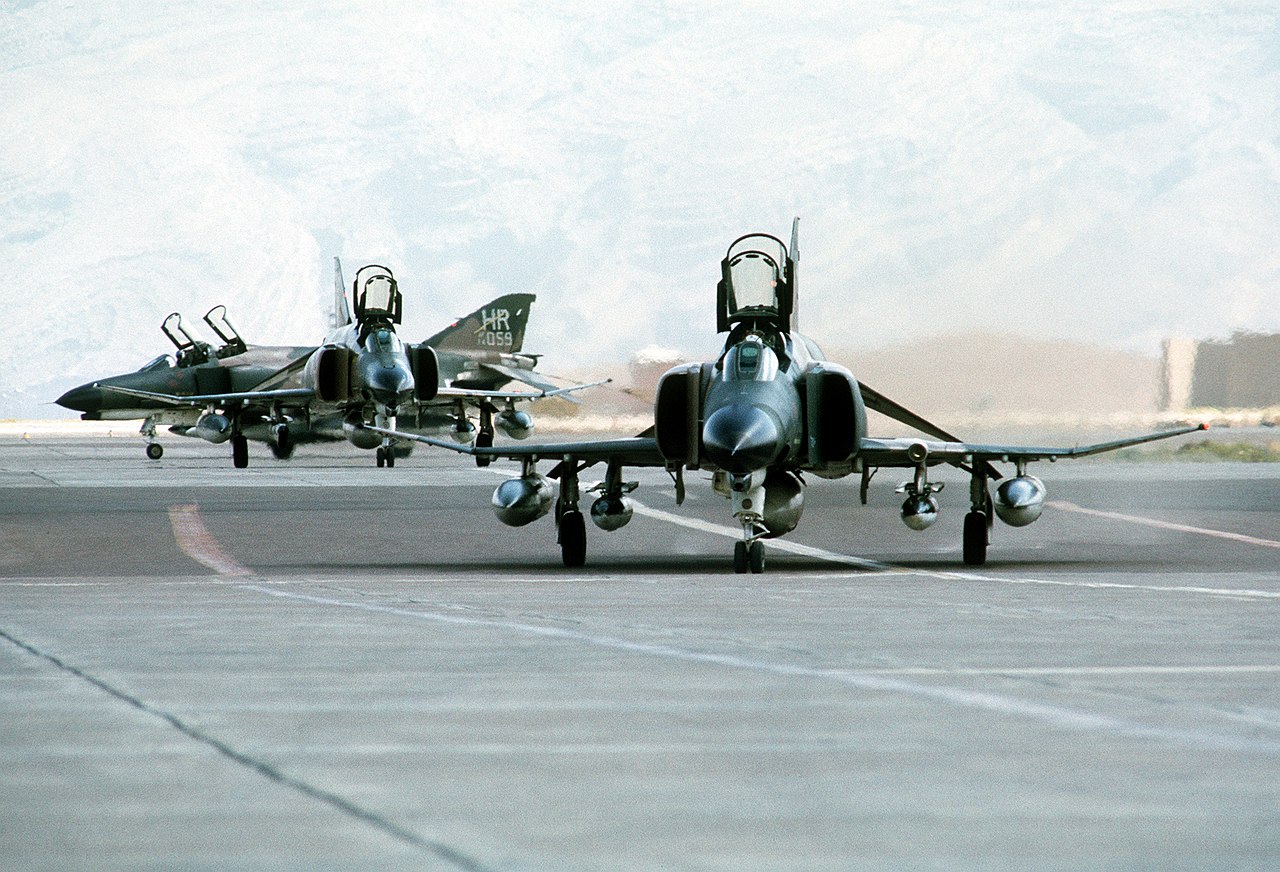For almost 25 years, the UK led an organisation that included Iran, Iraq, Turkey and Pakistan as military allies.
A Cold War defence organisation, the Baghdad Pact was part of a strategy to keep the Middle East far from the influence and expansionism of the Soviet Union.
The first decade of the Cold War witnessed the formation of many security and defence pacts in the West to counter the threat posed by the Soviet Union and communism. The North Atlantic Treaty Organisation (NATO), created in 1949, is widely considered as the most successful intergovernmental military alliance of the Cold War. Following the integration of Western Germany into NATO, the Soviet bloc reacted with the establishment of the Warsaw Pact that would meet its end in 1991. Even after the dissolution of the Soviet Union, NATO continues to be considered as one of the most relevant Western military organisation. However, its relevance has diverted attention from other regional pacts that existed within the context of the dispute between the “Eastern” and “Western” blocs led by the superpowers.
One of the overlooked agreements of those years involves Britain and four other nations. The “Pact of Mutual Cooperation Between the Kingdom of Iraq, the Republic of Turkey, the United Kingdom, the Dominion of Pakistan, and the Kingdom of Iran” of February 1955, also known as the Baghdad Pact or as Middle East Treaty Organisation would last for almost a quarter of a century. The agreement was the concretisation of Britain’s (and America’s) desire for containment of the Soviet influence and encroachment into the Middle East. The strategy was to establish a barrier of steady pro-Western states along the south-western frontier of the Soviet Union. For the United States, these countries were known as the “Northern Tier” and were crucial for keeping the “Rimland” of Eurasia out of Moscow’s grasp.
The Baghdad Pact had NATO as its primary model of organisation and objectives, meaning it was established to function as an intergovernmental military alliance. Officially, its purpose was the “maintenance of peace and security in the Middle East”. It also encouraged members to “refrain from any interference whatsoever in each other’s internal affairs” and to “cooperate for their security and defence”. Lastly, the Pact was “open for accession to any member of the Arab League or any other state actively concerned with the security and peace in this region”; this article was the pathway to eventual enlargement of the Organisation and the inclusion of the United States.
However, the United States could not overcome internal political divergences to join the Pact. The American presence would be felt through a series of individual agreements with the four members. Having the formal absence of the United States, Britain was considered as the informal leader of the alliance. The historical British involvement in the area had its positive influence in courting the friendly Hashemite Kingdom of Iraq, the Dominion of Pakistan and the Pahlavi Imperial State of Iran into a single organisation. Nevertheless, the situation proved to be highly unstable, and within the first decade of its existence, the Baghdad Pact would face a significant blow.

In 1958, the Hashemite monarchy of Iraq was overthrown by a coup d’état. The new Government of the Iraqi Republic decided to leave the Pact in the following year. After the crisis in Iraq, the United States became an associate member, and the Baghdad Pact was officially renamed Central Treaty Organisation (CENTO) in that same year. The events in Iraq would become a warning to British and American strategies during the following decades. The lesson was clear: CENTO’s security and defence agreements relied on friendly governments that in its majority, had unstable bases of support. Eventually, this would prove to be the factor that sealed the fate of the Organisation.
In the 1960s and early 1970s, CENTO would face increasingly challenging decisions. One of the crises that emerged in the region directly involved Pakistan. Since the partition of British India and independence of the dominions of Pakistan and India, the two countries had been engaged in wars, border skirmishes and military standoffs with each other. When the Second Kashmir War or Indo-Pakistani War of 1965 broke out, Pakistan sought aid from CENTO. Britain, Iran and Turkey rejected military assistance. Following Resolution 211 of the United Nations Security Council, Britain cut off arms supplies to both belligerents.
Roughly six years later, in 1971, a new conflict between India and Pakistan emerged. Once again, Pakistan requested support from allied CENTO countries. The reply from the other members was that the Organisation was created to counter the Soviet Union, meaning that India was not seen as a threat or enemy. Even though the members were right to understand the nature of CENTO as an alliance aimed to contain the Soviets, their rejection to support Pakistan would weaken CENTO’s usefulness for Islamabad.
Back in 1955, the interests of Iraq, Iran, Turkey and Pakistan would prompt them to form with Britain the mentioned regional security and defence pact. One reason widely shared by its members was the perceived threat posed by a rising Soviet influence in the region. For Iraq, the Baghdad Pact appeared as a way to strengthen its position vis-à-vis the Egypt of a rising Arab nationalistic Gamal Abdel Nasser. Iraq was one of the first opponents of Arab nationalism, and as Egypt adopted an Arab nationalistic behaviour and rhetoric, Iraq increasingly saw Cairo as an adversary. The Pro-Western Iraqi Government would also break relations with the Soviet Union to display its commitment to Western interests and reaffirm its relevance to Britain in the region.
Similarly, for Turkey, the treaty was a way to improve its relations with the West, especially with the United States and Britain. Iran, after a period seeking a neutral instance within the context of the Cold War, changed its strategy and had been looking to align itself with Britain and other Western powers. The Pact was also a source of stability for the Shah’s Government. In the case of Pakistan, the country had been seeking measures to balance relations with India and to profit from foreign economic aid that could be achieved through the Baghdad Pact.
In 1979, one of the Iranian Shah’s fears that led his Government to join CENTO became a reality. The Iranian Revolution or Islamic Revolution began in early 1978 when demonstrations against the Shan intensified. In January 1979, the Shan Reza Pahlavi left the country for exile. Within one month, the forces loyal to the Pahlavi Dynasty were defeated. The revolution in Iran hastened the end of the Organisation. The Islamic Republic of Iran formally left CENTO in that same year ending almost 25 years of alliance with the United Kingdom.
Nevertheless, by 1979, CENTO was outdated mainly for two reasons. Firstly, during the 1960s and early 1970s, the Soviet Union had bypassed the “Northern Tier” strategy by strengthening its presence in Middle East countries that were not members of CENTO. The Soviet established close military and political links with Syria, Egypt, the People’s Democratic Republic of Yemen, and even with a former CENTO member, Iraq. Moscow also arranged agreements to establish naval bases in Syria, Yemen, and Somalia. Therefore, the “containment” of the Organisation was short-lived and could only keep Turkey and Pakistan relatively away from Soviet-backed insurgents or friendly governments.
Secondly, in 1974 Turkey invaded Cyprus after a Greek-backed coup d’état that installed a pro-Enosis (union with Greece) as President of Cyprus. Britain heavily criticised Turkey for the invasion of a former colony and member of the Commonwealth. The Turkish Republic of Northern Cyprus, supported by Ankara, would not receive recognition from the UK or the international community. Moreover, the British Government understood that the conflict could spread to the British Sovereign Base Areas of Akrotiri and Dhekelia, which were essential locations for exercises and meetings of CENTO. Following the strained relations with Turkey, during that same year, the British Government decided to withdraw military its forces that had been reserved for the alliance. This decision effectively ended most of the military activities of CENTO. The Revolution in Iran five years later, would only abolish any remaining rationale to the Organisation. It was officially dissolved in March 1979.
After the dissolution of CENTO, Britain would opt for bilateral defence agreements with regional countries. The United States – which had been an Associate Member since 1956 – also signed bilateral defence agreements with former CENTO members, especially Turkey and Pakistan. The events and setbacks that marked the existence of the Organisation led it to be classified as one of the least successful alliances created during the Cold War. National instability of the Middle East members proved to be fatal to CENTO’s success and existence. Moreover, the “containment” strategy proved to be short-lived when the Soviet Union managed to establish strong relations with Egypt, Iraq, Syria and other regional countries.
For Britain, the Central Treaty Organisation was a mixed experience while the country tried to maintain and protect its influence and interests in the region. It enabled the British forces to access military facilities in the area, especially in Iraq (until 1959) and Pakistan and acted as a way to counter the British imperial retreat from the Middle East. Lastly, the Organisation worked as a way to use the British Armed Forces as a model to other members, opening the way to standardise their forces following the British model of organisation. However, the commitment to CENTO could never become a policy more relevant than NATO to the British Government. This meant that while having NATO as a model, CENTO was a relatively loosened military alliance with significant divergence in interests and values amongst its members, not mentioning the difference between members’ armed forces and institutions.
Thus, the Baghdad Pact/CENTO lasted for almost 25 years as a Cold War alliance that aimed to preserve the region from Soviet influence and expansionism while improving the position of its members as pro-Western anti-communist bastions. Despite the support from the United States and the British membership, CENTO was not able to hold the line against internal problems of its Middle East members. The Iraqi coup was a setback that the Organisation could overcome. Nevertheless, the Indo-Pakistani Wars tested the limits of the allied nations to aid a member during a military conflict; as the Soviet Union was not directly involved, no support came for Pakistan. Finally, the Turkish Invasion of Cyprus in 1974 and the Iranian Revolution in 1979 cemented the end of the turbulent existence of the Central Treaty Organisation. For Britain and Iran, it also marked the beginning of the end of the cordial and close Anglo-Iranian relations.














How long can Turkey remain a member of NATO, considering Erdogan’s actions on the Greek border.
Turkey’s geographic position and regional influence is too important to loose as a NATO ally.
Are the news stories becoming thin on the ground already.
I’ll save this one on the off chance I become stuck somewhere with nothing better to do over coming weeks.
Mark, we have always published analysis pieces. This isn’t new and it’s normal for us.
I really enjoy the analysis pieces, I particularly enjoyed the one on the type 45 destroyer any more pieces like that coming.
Much appreciated by people who think beyond defence as ‘toys for boys’.
Sorry George I put that badly. I do read and enjoy the analysis pieces – it just occurred to me that I might get more time than I wanted in the weeks to come to read such things properly. I am like everyone else (I expect) busy getting as much done as possible whilst I can.
It seems reasonable to suspect that some Defence decisions might well be deferred whilst attention is focused on the NHS. If anything that might give more time for analysis articles.
Reading history is never time wasted….if you ignore the past, how can you understand the present?
and indeed have some insight into the future … words of wisdom Herodotus
Thanks Mark…but as a history teacher I kind of have to make that sort of remark…!
Oh brave man. I always get the impression the youth of today find it difficult to relate to historical events. Yes they absorb the facts and figures but why? Strategy? War? Death (a lack of toilet rolls) are all alien concepts.
Interesting article. I was not aware of the Baghdad / CENTO organisation so this was something new to me. It has added some extra context to the UK’s role in the Middle East, especially as we seem to be taking an increasingly active role East of Suez.
Also as mentioned in the posts above history is important as it can directly influence cultural attitudes towards current situations. For example, we supported the Shah’s regime so perhaps it is not surprising that the current regime in Iran is not overly friendly towards us – regime’s can have long memories enshined in their political outlook and established policies.
By the way that’s a nice picture of Montrose and Queen Mary 2. It must have been quite a view from the decks of the Liner to watch Montrose zipping across the wake like that! Not to mention reasuring…